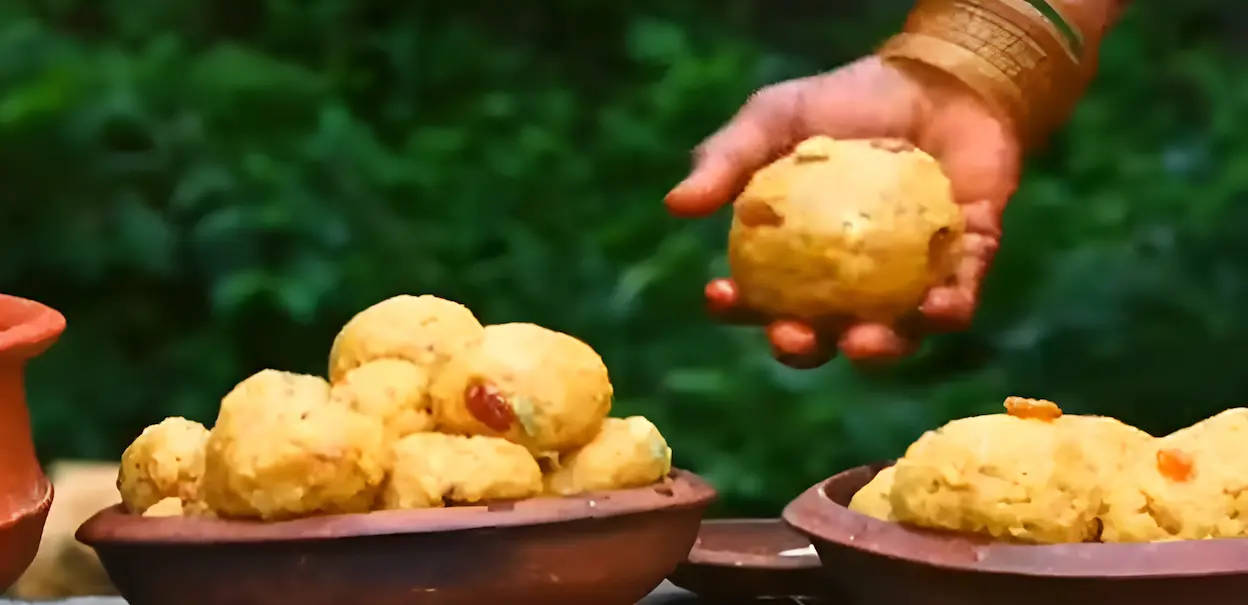
the SIT probing the Tirumala ghee adulteration case has submitted a sealed report to the Supreme Court, exposing a ₹146 crore scam
Divine Deception: How Sacred Offerings Were Tainted for Profit
Scam in Tirumala – The Tirumala Tirupati Devasthanams (TTD), revered for its sacred laddu prasadam, has been jolted by a scandal that strikes at the heart of faith and food safety. Between 2019 and 2024, ghee used in the preparation of these offerings was allegedly adulterated with chemical-based palm oil derivatives an act that not only violated religious sanctity but also endangered public health.
Table of Contents
The Special Investigation Team (SIT), constituted by the Supreme Court in October last year, has now submitted a sealed report detailing the scale and mechanics of the fraud. Headed by the CBI Director and supported by state police and FSSAI officials, the SIT uncovered that blacklisted firm Bholebaba Dairy, operating through proxy suppliers AR Dairy and Vaishnavi Dairy, was at the center of the adulteration ring.
Shockingly, Bholebaba Dairy lacked the infrastructure to produce ghee or even procure milk. Local farmers confirmed they had never supplied milk to the firm, raising serious questions about how such a supplier was allowed into the TTD’s procurement chain.
The ₹146 Crore Mirage: Fake Invoices, Hawala Trails, and a Cinematic Cover-Up
The SIT’s investigation revealed a meticulously orchestrated financial fraud. Ashish Agarwal, named as Accused-15, allegedly created fake invoices worth ₹146 crore through a web of shell companies including Agarwal Trading Company, Supreme Inc., and Agarwal & Sons. These invoices were used to deceive temple authorities and bypass FSSAI inspections.
In a move described as “cinematic” by Additional Public Prosecutor Jayasekhar, empty lorries were dispatched from Bikaner and Delhi to Roorkee to simulate ghee deliveries to Bholebaba Dairy in Uttarakhand. The SIT likened the operation to a real-life version of the film Drishyam, where every move was calculated to mislead investigators.
The financial trail didn’t stop at fake paperwork. The SIT uncovered that payments made by Bholebaba Dairy to these shell firms were later withdrawn through hawala channels. Agarwal allegedly received a 2-3% commission on each transaction, making him a central figure in the laundering operation. He even destroyed his mobile phone to erase digital evidence, further complicating the probe.
Legal Wrangles, Political Ripples, and the Road Ahead
The SIT report also highlights the legal manoeuvres employed by the accused to stall the investigation. Multiple petitions were filed in various courts, and there were attempts to intimidate witnesses and challenge the jurisdiction of investigating officers. In one instance, a High Court even cancelled a police notice on the grounds that the officer was not part of the SIT, a move the SIT flagged as part of a broader obstruction strategy.
The scandal has triggered political tremors. Former TTD Chairman and YSRCP MP Y.V. Subba Reddy filed a petition in the Supreme Court alleging that the SIT was not adhering to court directives and sought a stay on its operations. The case is scheduled for hearing on July 14.
Meanwhile, the Nellore Anti-Corruption Bureau (ACB) court has denied bail to Ashish Agarwal, citing his influence and the risk of witness tampering. The SIT has already arrested 14 individuals, including directors and staff from the implicated dairies, and continues to build its case.
The implications of this case are profound. It has exposed glaring lapses in procurement oversight, food safety enforcement, and institutional accountability within one of India’s most sacred religious trusts. The Supreme Court’s next steps could set a precedent for how religious institutions are held accountable in matters of public trust and health.
Stay updated with the latest news on Rapido Updates. Keep yourself updated with The World, India News, Entertainment, Market, Automobile, Gadgets, Sports, and many more
Also read
Tirupati Devasthanam’s Wealth vs. Pilgrim Hardships: Where Does the Money Go?